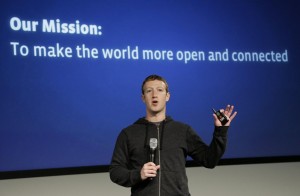With Facebook now 1.5 billion dynamic clients around the world, Mark Zuckerberg of the face could have some rest and relax. Rather, he and other Facebook officials have been occupied with creating “Internet.org”, which, as per the official site, will “unite the 70% of the world that doesn’t have Internet access.”
Given that just 30 percent of worldwide residents have general Internet access, more support gatherings are calling for Internet access as an essential human right. At first look, then, the mission of Internet.org appears to be respectable. Anyway, worries about benefit and protection have risen, driving some to infer that this “free” Internet may be unrealistic.
The Idea itself
Here’s the way it lives up to expectations: Facebook has joined forces with various cellular telephone organizations and third-world telecom suppliers to offer free Internet administration for the individuals who can’t generally bear the cost of access. As of early at May this year, the organization has taken off Internet.org in countries like Tanzania, Kenya, Zambia, Guatemala, Indonesia, Colombia, Ghana, Philippines , India and Bangladesh.
Clients are given no-expense access from a particular bearer however aren’t ready to influence high-transmission capacity services like downloads or uploads. The thought here is to give fundamental access to the internet. The issue? It might likewise cross paths with Net Neutrality.
How the system works?
Facebook supplies the Internet.org application, then what happens when the system runs all movement through its own huge servers? It turns into an accepted Internet supplier (ISP), yet with the same sort of limitations put on for-paid traffic.
Furthermore, Zuckerberg and his organization get the opportunity to choose which sites are a piece of their Internet and which are closed off with the expectation of complimentary clients — who dependably have the choice of moving up to paid arrangements, a large number of which are noticeably shown through on location promotions.
As the company mentioned, this sort of gate keeping prompted push to the back from a few Indian productions, which said that the organization was damaging the exceptionally Net Neutrality standards it asserted to maintain. Put just: if Facebook chooses what’s free and what isn’t by standing monitor over site access, then it’s Internet isn’t generally free.
Subsequently, the Zuckerberg has reported that any organization or site can now apply to join the Internet.org activity and turn out to be a piece of the substance pipeline which clients can get to have a free access.
The Not So BAD Thing!
A few associations are voicing their backing for the Facebook-controlled Internet. Some, for instance, calls attention to that while its anything but difficult to toss stones at Zuckerberg, since they’re rich and capable, there’s nothing inalienably the matter with making a benefit. Indeed, as a traded on an open market organization, the social networking site has the obligation to make it proud shareholders and produce however much income as could reasonably be expected. Since Facebook is under no commitment to offer any sort of free Internet administration, notwithstanding something that is obviously a publicizing wizard can’t be all awful in the event that it gets more individuals on the web!
The Not So GOOD Thing!
Two extensive issues with Internet.org pop out to psyche, even under the new model: control and security. Indeed, any engineer can now apply to join the group — and have their data steered through Facebook’s servers. As more information gets past the door, the online networking mammoth acquires control and essentially isn’t under the same sort of commitment to reveal their utilization of this data as a for a paid ISP.] 
There’s likewise the issue of security, since Facebook won’t permit any destinations that utilization SSL or TLS — two key efforts to establish safety which scramble information and help divert vindictive assaults. The organization guarantees this is a specialized issue however could possibly put free clients at danger of having their information bargained, particularly if more “secure” online administrations decide to join the Internet.org development.
Then what’s the last word on a Facebook fueled Internet? The street to Hell is a decent sample: Zuckerberg may have the best of expectations, yet the simplicity of the service, may put some clients into privacy issues!



